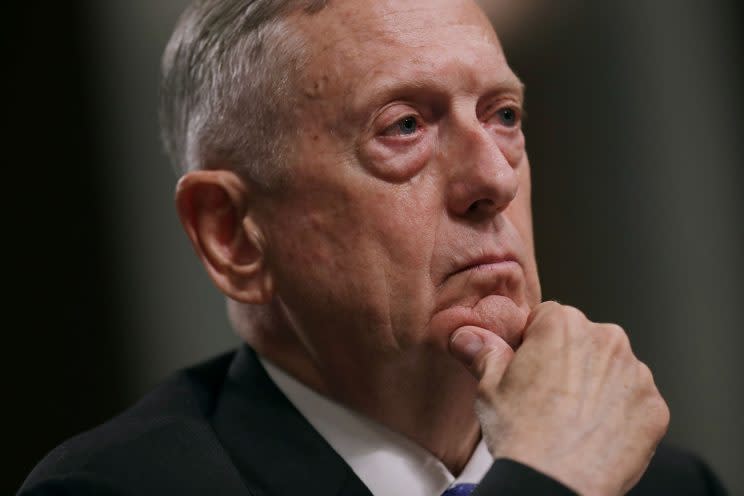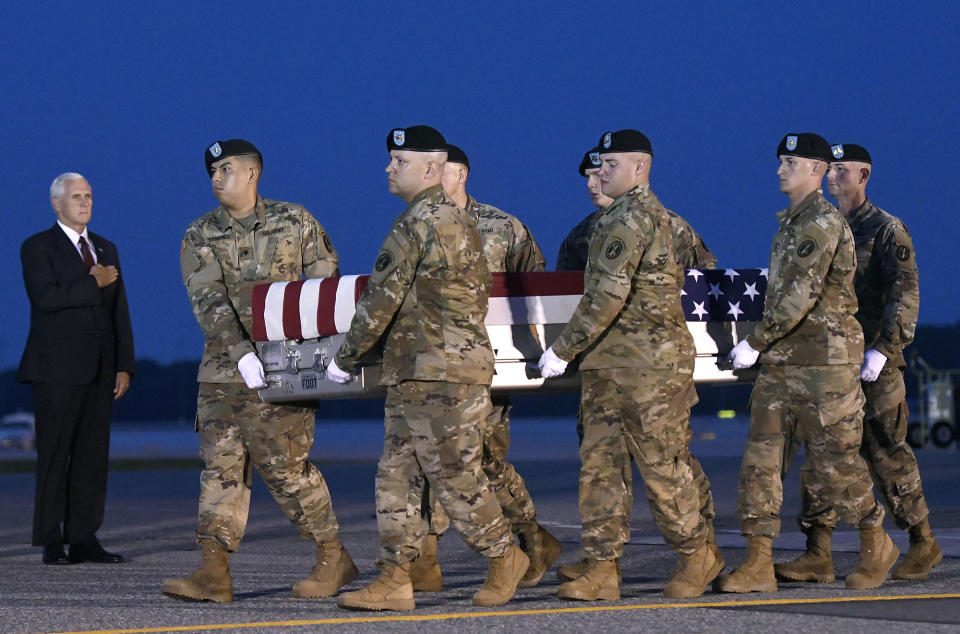Defense chief Mattis: ‘We’re not winning in Afghanistan’

WASHINGTON — Facing sharp criticisms from impatient senators, Defense Secretary James Mattis on Tuesday agreed that “we are not winning in Afghanistan” and promised a new strategy by mid-July. Mattis also said that even victory in America’s longest war would likely mean a long-term U.S. troop presence.
“We are not winning in Afghanistan right now. And we will correct this as soon as possible,” Mattis told the Senate Armed Services Committee. “I believe by mid-July we will be able to brief you in detail.”
As candidate in 2016, President Trump promised a full review of the war in Afghanistan and a new strategy. The Pentagon has made clear it wants “thousands” of additional troops, on top of the roughly 8,400 U.S. forces and about another 7,000 from NATO allies.
Sen. John McCain, R-Ariz., the panel’s chairman, warned sharply that lawmakers’ patience with the Trump administration’s handling of Afghanistan was not infinite and that a plan was overdue.
“I was confident that within the first 30 to 60 days we would have a strategy from which to start working,” McCain said, adding, “unless we get a strategy from you, you’re going to get a strategy from us.”
The Arizona Republican warned Mattis that lawmakers “are going to start getting more vocal in our criticism of not having a strategy for Afghanistan.”
Sen. Roger Wicker, R-Miss., asked Mattis to “define for us what winning in Afghanistan means” — a question U.S. policymakers have wrestled with since the Oct. 7, 2001, invasion.
“What does winning look like?” Mattis replied. “The Afghan government — with international help — will be able to handle the violence and drive it down to a level that local security forces can handle it.”
Still, “With our allies, it would probably require residual force doing training and maintaining the high-end capability” to take out security threats, Mattis said. “It’s going to be an era of frequent skirmishing, and it’s going to require a change in our approach from the last several years if we’re to get it to that position.”

Three U.S. soldiers were killed over the weekend in Afghanistan. Overall, some 2,400 Americans have died in the conflict and more than 20,000 have been wounded. Former President Barack Obama drew frequent criticisms from Republicans who accused him of focusing on withdrawing U.S. forces rather than defeating the Taliban. Obama aides said their main goal was making local security forces self-sustaining in order to extricate the United States from a seemingly intractable conflict.
The retired four-star Marine general’s assessment that the United States and its allies aren’t winning was not dramatically different from what Army Gen. John Nicholson, who leads U.S. and international forces in Afghanistan, told Congress in February. At the time, Nicholson told McCain’s committee that he had a troop shortfall of “a few thousand” and declared “we’re in a stalemate” against the Taliban — neither winning nor losing.
On June 6, White House press secretary Sean Spicer told reporters that victory in Afghanistan means “a stable government; us free from threats.”
On May 8, Spicer said Trump “wants to make sure that we do what we can to win. And that’s why he charged the generals and other military advisers and the national security team to come up with a plan that can get us there.” A day later, he said the president’s goal was “to fully eliminate any threat around the globe frankly, not just in Afghanistan, that poses a threat to our people and our allies.”
Read more from Yahoo News:
Trump cuts would make troops ‘less safe,’ top retired generals say
Mother of Pulse victim says social media companies ‘complicit in some of these terror acts’
9th Circuit cites Trump tweet in opinion blocking travel ban
Photos: Tributes mark the one-year anniversary of Pulse nightclub shooting in Orlando



